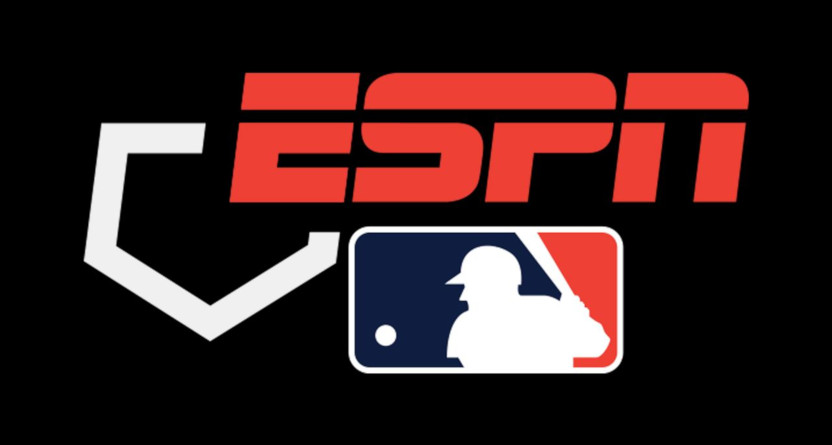ESPN and Major League Baseball stunned the sports world with the announcement that the two would end their television relationship after decades together, with an opt-out of the current contract. But that’s only the beginning of the story.
In the days and weeks since the opt-out, there have been plenty of quotes, stories, and reports about the possible future of MLB on television and who might be interested in what parts of the current ESPN deal. Even ESPN itself.
It’s not necessarily a fait accompli that ESPN is getting out of the baseball business. But it certainly seems like an uphill battle, given MLB commissioner Rob Manfred’s public rhetoric and the lack of respect he feels the sport has received from the network. Multiple networks have also expressed interest in some or all of the ESPN package.
But Bristol isn’t giving up hope. Mollie Cahillane reports in Sports Business Journal that ESPN is not viewing this season as a lame duck year with Major League Baseball, and there exists “some optimism” that the two sides can eventually work something out.
“No one is packing it in,” said a source with knowledge of ESPN’s internal operations. “No one’s treating this like a lame duck year at all. It’s all business as usual.”
Those sentiments reflect what longtime ESPN MLB voice Karl Ravech told me last week.
But while ESPN is full steam ahead right now, MLB is out in the market looking for a media partner to replace what ESPN would have been airing in 2026, 2027 and 2028 — 30 regular-season games, the Wild Card round and Home Run Derby. Fox, NBC, Amazon and Netflix are among the names tossed around as potential landing spots, but ESPN still believes “there’s some optimism [around a new deal],” said the source.
In one respect, any potential deal between ESPN and Major League Baseball will purely be about economics. As Cahillane also shares, MLB’s position is that ESPN needs to up its financial offer to come back to the table. And with reports that ESPN was looking to shave $300 million per year off of their contract, any sort of optimism from the network that MLB would accept that kind of deal could be no more than wishful thinking.
There’s also the pride factor, and that may be the most challenging hurdle to overcome. Much like David Zaslav alienated Adam Silver after saying Warner Bros. Discovery didn’t need the NBA anymore, there may be no returning from the hurt feelings that Major League Baseball is experiencing from ESPN. For Manfred and MLB to come crawling back to ESPN at a vastly reduced rate or reduced package would signal that Bristol was right about the diminishing value of their product.
It would definitely make sense for MLB to stay in business with ESPN. We’ve seen in the past that when ESPN ends a relationship with a sport, it becomes not just an endangered species, but extinct on their airwaves. But it would come at some price for baseball that they may not be willing to pay.
